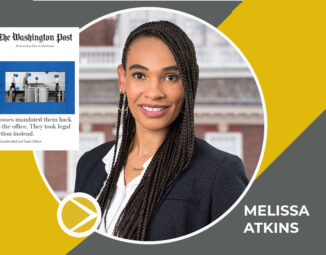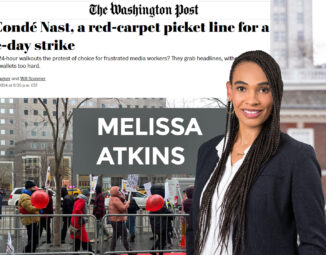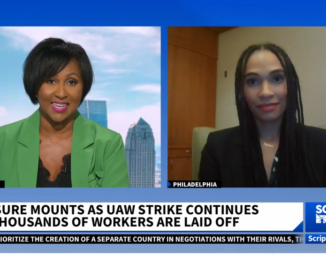Client Alert: A Flurry of Activity at the NLRB Gives Employers Cause for Concern in 2023
In a push to close the year with some more “gifts” to unions, the National Labor Relations Board (“NLRB”)—both the Board itself and the Office of the General Counsel—issued two decisions and an advice memorandum that may have employers feeling like they landed on the naughty list. In two 3-2 decisions (driven by political affiliation), the Board put its thumb on the scale to tip the balance in favor of employees in two ways. First, it reversed a 2017 Trump-era Board decision and reinstated a decision from 2011 governing the circumstances under which an employer may seek to argue the appropriateness of a proposed bargaining unit. Second, the Board permitted what it refers to as “consequential damages” as part of its “make-whole relief” that employees receive when they are on the wrong end of an unlawful labor practice. Not to be outdone, the General Counsel’s office issued an advice memorandum seeking to lower the standard under which an employer must provide a union with its general financial information – a scenario employers carefully craft negotiating positions to avoid.
Forming a bargaining unit starts with a union petitioning for certification of a unit it has identified. This gives the union an incentive to define a proposed unit the union thinks has the best chance of winning an election, not necessarily a unit that represents all the employees’ interests – think gerrymandering, but in a labor context. In a 2011 ruling (when Obama was President), the Board issued a ruling that required employers wishing to challenge the exclusion of certain workers from a proposed unit to demonstrate that the excluded workers “share an overwhelming community of interest” with the workers in the bargaining unit proposed by a union. The Board changed its tune in 2017 (when Trump was President) and, while not prohibiting unions from outrightly gaming the way they define bargaining units, required unions to at least demonstrate that workers they excluded from a proposed bargaining unit have “sufficiently distinct interests from those included.” In flipping the standard back to the 2011 rule, the Board argued that the “sufficiently distinct” standard is vague and confusing (whereas the “overwhelming community of interest” is presumably not) and that the 2017 standard lacked Board precedent unlike its decision just six years earlier. In any event, what’s old is new again and will present an obstacle to employers who wish to challenge what they view as inappropriately proposed bargaining units.
On a separate front, the Board expanded employers’ potential liability for unfair labor practices to include “consequential damages” as an available remedy. In the past, remedies had typically been limited to back pay and reinstatement. This Board decision has the potential to greatly, and perhaps unpredictably, expand an employee’s recovery to include losses that are “direct or foreseeable” monetary harms that result from the unfair labor practice. In the past, such consequential damages have been included in negotiated settlements and have included items such as missed mortgage payments, missed car payments, and interest on loans. Importantly, these damages are now recoverable in all cases, not just egregious violations. Employers are of course able to challenge any such claimed damages, yet there is very little guidance in terms of what constitutes a “direct” or “foreseeable” monetary harm caused by an unfair labor practice, and so the decision yields great uncertainty for employers in the times to come.
Finally, employers are understandably reluctant to produce records of their general financial information to unions and are usually required to do so only if they have reasonably conveyed “an inability to pay” more than they have offered during negotiations. This allowed for open and frank negotiations without the fear of inadvertently putting sensitive financial information into play. The General Counsel’s advice memorandum, released on November 30, 2022, proposes to drastically alter this standard, which has the potential to turn negotiations into a trap for the unwary. Indeed, under the proposed standard, an employer will be deemed to have “effectively” claimed an inability to pay if it raises either its profitability or competitive advantage – an expansion that has the potential to include bargaining positions where the employer may be technically capable of paying what the union demands, but is simply unwilling to do so. Employers should take heed of the General Counsel’s proposed standard so as to avoid inadvertently putting their sensitive financial information at issue.
As always, we will continue to monitor all three situations, which promise to yield some interesting case results in the coming year. Please do not hesitate to contact the Labor & Employment lawyers at Obermayer should you have any questions.
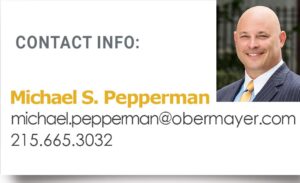
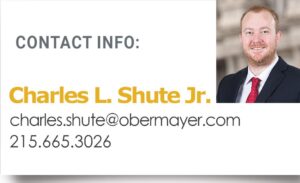
This alert is intended for general informational purposes only, and you are urged to consult your own attorney concerning your situation and specific legal questions you have.






